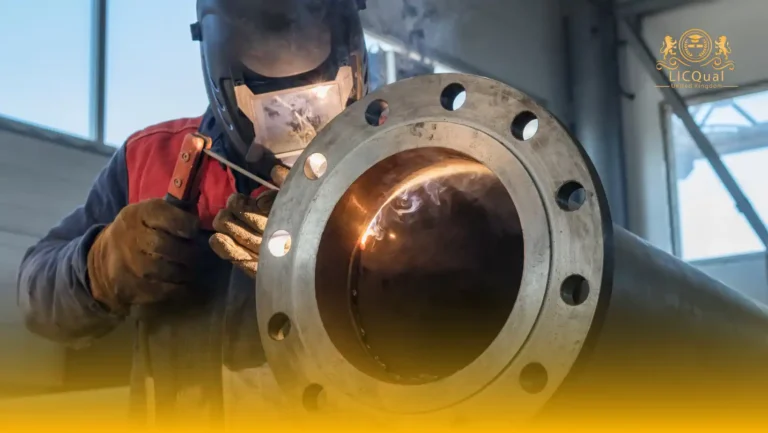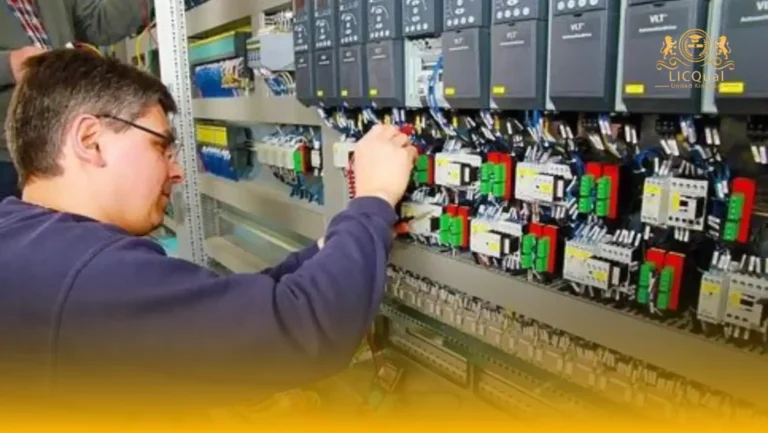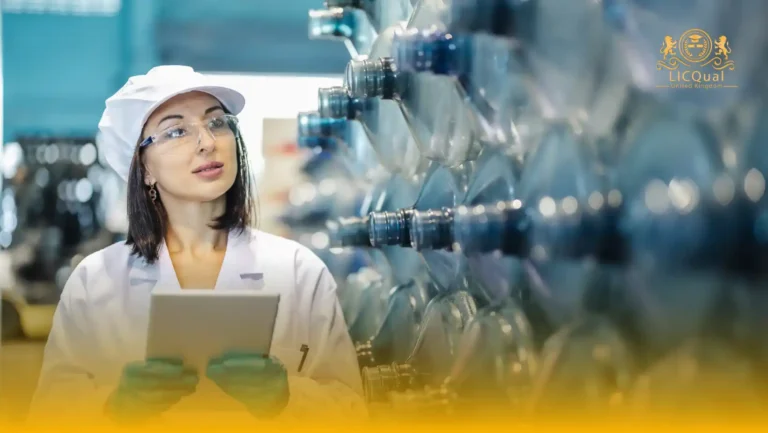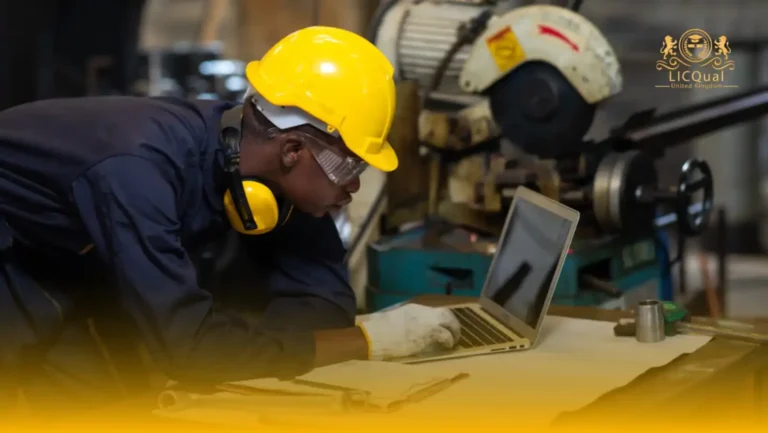The LICQual Level 6 Diploma in Quality Assurance / Quality Control (QA/QC) and Piping Engineering is a highly advanced and internationally accredited qualification tailored for professionals aiming to take leadership roles in the QA/QC and piping engineering sectors. This program is designed to build strategic, technical, and managerial competencies required in industries such as oil & gas, petrochemicals, construction, power plants, and manufacturing.
This diploma offers an in-depth understanding of complex quality management systems, advanced inspection techniques, piping design and fabrication, welding technology, and international codes and standards (ASME, ASTM, API, ISO). Learners will explore non-destructive testing (NDT), project documentation control, root cause analysis, and quality audit practices, all aligned with global engineering and safety protocols.
With a strong emphasis on practical application, this course develops the ability to lead QA/QC teams, oversee large-scale industrial projects, ensure regulatory compliance, and improve operational efficiency through robust quality frameworks. It is ideal for experienced professionals looking to progress into senior roles such as QA/QC Engineer, Piping Superintendent, Quality Manager, or Project Inspector.
Whether you’re upgrading your skills or aiming for international career advancement, the LICQual Level 6 Diploma equips you with the tools to thrive in competitive, quality-driven engineering environments.
Course Overview
Qualification Title
LICQual Level 6 Diploma in Quality Assurance / Quality Control (QA/QC) and Piping Engineering
Total Units
6
Total Credits
120
GLH
480
Qualification #
LICQ2200551
Qualification Specification
To enroll in the LICQual Level 6 Diploma in QA/QC Piping Inspector applicants must meet the following criteria:
|
Qualification# |
Unit Title |
Credits |
GLH |
|---|---|---|---|
|
LICQ2200551-1 |
Advanced Quality Management Systems in Engineering |
20 |
80 |
|
LICQ2200551-2 |
Piping Design, Analysis, and Engineering Applications |
20 |
80 |
|
LICQ2200551-3 |
Welding Technology and Quality Control |
20 |
80 |
|
LICQ2200551-4 |
Non-Destructive Testing (NDT) and Inspection Methods |
20 |
80 |
|
LICQ2200551-5 |
International Standards and Regulatory Compliance |
20 |
80 |
|
LICQ2200551-6 |
QA/QC Project Planning and Documentation Control |
20 |
80 |
By the end of this course, applicants will be able to:
1: Advanced Quality Management Systems in Engineering
By the end of this unit, learners will be able to:
- Critically evaluate the structure and purpose of Quality Management Systems (QMS).
- Implement ISO 9001 and related standards within engineering projects.
- Apply continuous improvement strategies like Six Sigma and Kaizen.
- Integrate risk-based thinking into quality planning and process control.
2: Piping Design, Analysis, and Engineering Applications
By the end of this unit, learners will be able to:
- Design complex piping systems based on operational and environmental conditions.
- Conduct pipe stress and flexibility analyses using standard techniques and software.
- Select appropriate piping materials considering mechanical and chemical properties.
- Use CAD/CAE tools for piping layout and engineering documentation.
3: Welding Technology and Quality Control
By the end of this unit, learners will be able to:
- Analyze advanced welding methods and assess their suitability for specific applications.
- Interpret and evaluate WPS, PQR, and WPQ documents for compliance.
- Identify welding defects and recommend appropriate corrective measures.
- Establish and oversee quality control procedures in welding operations.
4: Non-Destructive Testing (NDT) and Inspection Methods
By the end of this unit, learners will be able to:
- Explain the principles of advanced NDT techniques such as PAUT and TOFD.
- Select appropriate NDT methods for specific inspection requirements.
- Interpret NDT data and classify defects based on acceptance criteria.
- Ensure safe and compliant execution of NDT procedures in the field.
5: International Standards and Regulatory Compliance
By the end of this unit, learners will be able to:
- Apply ASME, API, ASTM, and ISO standards in QA/QC engineering tasks.
- Interpret legal and regulatory requirements relevant to engineering projects.
- Conduct audits and prepare documentation for quality compliance.
- Evaluate real-world case studies involving standard violations and project failures.
QA/QC Project Planning and Documentation Control
By the end of this unit, learners will be able to:
- Develop comprehensive ITPs, QCPs, and method statements for projects.
- Implement effective documentation control systems using digital tools.
- Maintain traceability of materials and welding processes through records.
- Manage NCRs and CAPAs in alignment with project timelines and quality goals.
The LICQual Level 6 Diploma in Quality Assurance / Quality Control (QA/QC) and Piping Engineering is specifically designed for experienced professionals and aspiring leaders in the fields of quality assurance, inspection, and piping engineering. It is ideal for individuals seeking to advance their technical expertise, project management capabilities, and compliance knowledge within high-risk, quality-sensitive industries.
This course is suitable for:
- QA/QC Engineers and Inspectors aiming to deepen their knowledge of international standards, documentation systems, and advanced inspection techniques.
- Piping Engineers and Supervisors looking to enhance their understanding of piping design, fabrication control, and material standards.
- Project Engineers and Site Managers responsible for quality assurance and control in construction, oil & gas, petrochemical, or power plant environments.
- Mechanical and Industrial Engineers seeking specialized training in welding quality, NDT methods, and risk-based quality planning.
- Professionals in regulatory or compliance roles who require a solid understanding of global codes such as ASME, API, ISO, and ASTM.
- Technicians and mid-level staff with relevant experience who are preparing for senior-level or leadership positions in QA/QC or engineering project management.
Whether you are working in oil & gas, petrochemical plants, construction projects, manufacturing units, or infrastructure development, this diploma will empower you with the advanced skills and globally recognized credentials to grow in your career and take on high-responsibility roles.
Assessment and Verification
All units within this qualification are subject to internal assessment by the approved centre and external verification by LICQual. The qualification follows a criterion-referenced assessment approach, ensuring that learners meet all specified learning outcomes.
To achieve a ‘Pass’ in any unit, learners must provide valid, sufficient, and authentic evidence demonstrating their attainment of all learning outcomes and compliance with the prescribed assessment criteria. The Assessor is responsible for evaluating the evidence and determining whether the learner has successfully met the required standards.
Assessors must maintain a clear and comprehensive audit trail, documenting the basis for their assessment decisions to ensure transparency, consistency, and compliance with quality assurance requirements.







